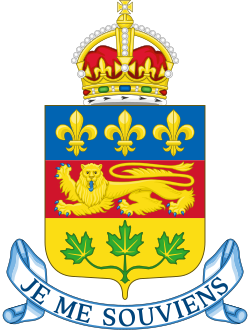This article needs additional citations for verification .(October 2025) |
| History of Quebec |
|---|
 |
| Timeline |
| Territory of Quebec |
|
| Topics |
This section of the Timeline of Quebec history concerns the events relating to the province of Quebec, Canada between the beginning of the 20th century and the Westminster statute.